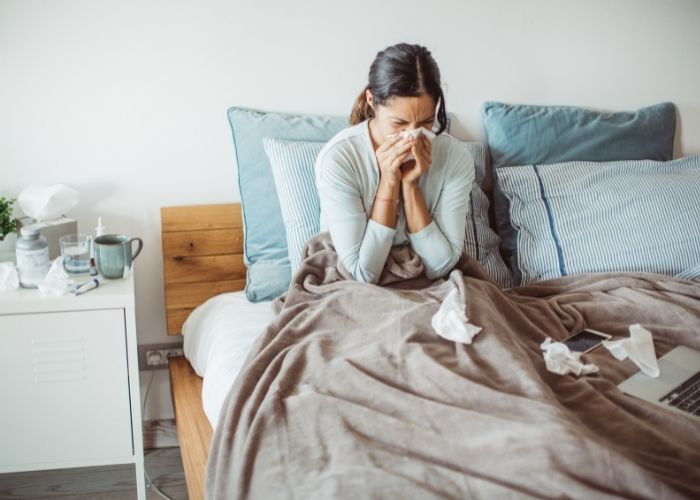MADRID – After several unusual years dominated by COVID-19, the flu has made a significant comeback in Spain. Health centres are inundated with patients, and it appears that the number of respiratory infections has surged after the holiday season.
Doctors are struggling to keep up with the demand for appointments, and even before Christmas, there was a noticeable increase in the number of respiratory infections. All signs indicate that this trend will continue in the coming weeks, with a peak expected in the second half of January.
Shortage of Doctors
A winter flu outbreak is a nearly annual occurrence, yet health centres continue to grapple with the influx of patients. There seems to be no solution in sight for the chronic shortage of healthcare personnel that became apparent during the pandemic. Various reports indicate that thousands of healthcare professionals are needed in primary care health centres. Low wages and less favourable working conditions have led many workers to opt for jobs in hospitals or abroad.
Stay hydrated and take paracetamol
A physician in Málaga reports that currently, 60% -70% of patients coming to the clinic have respiratory issues, mostly flu, but also COVID-19 and other respiratory conditions. Most health centres do not test for the virus. The treatment is largely the same for most patients: staying well-hydrated and taking paracetamol to alleviate symptoms. Additionally, people are advised to be cautious and not infect individuals with vulnerable health conditions.
Only visit the doctor when necessary
Lorenzo Armenteros, spokesperson for the Spanish Medical Association, urges people who are not part of a high-risk group to refrain from immediately seeking medical attention. “There is no reason to panic; give it 48 hours to see how the symptoms develop. Take a fever-reducing or anti-inflammatory medication in low doses and monitor the situation. If the situation does not improve, medical assistance may not always be necessary. You should only seek it for more severe symptoms such as shortness of breath, a fever lasting longer than four days, worsening respiratory conditions, or a change in the colour of phlegm,” Armenteros advises.
Return of face masks in medical centres
Armenteros believes that the flu epidemic could have had a lesser impact with higher vaccination rates and protective measures. Several parties and autonomous regions are now advocating for the return of face masks in healthcare centres due to the high number of infections.
Is this epidemic worse than previous years?
The predominant virus this season is influenza A, which typically leads to more severe symptoms than other variants. However, it is a known pathogen. According to the data published so far, Spain is currently experiencing a normal situation. Colds and cases of the flu are typical for this time of year.
Hospitals can manage admissions
For people with vulnerable health conditions and the elderly, a flu virus or respiratory infection can pose risks. As a result, the number of hospital admissions tends to increase during this period. However, the situation is far from being as critical as in primary care.
Also read: Cold weather alert in Spain: how to get a healthier immune system?


